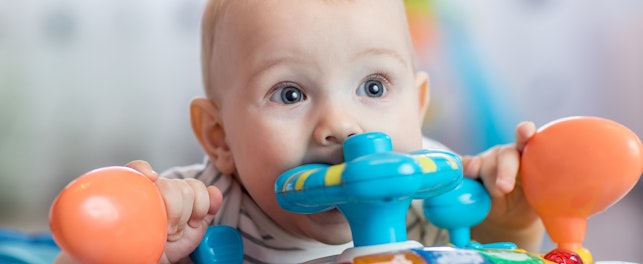The US state of Maine has added PFOS and its salts for reporting in certain children’s products. The new rule became effective on July 28, 2020.
In 2008, Maine enacted the ‘Toxic Chemicals in Children’s Products’ Law (Title 38, Chapter 16-D). This law requires manufacturers or distributors of children’s products to disclose specific information if a priority chemical (PC) is added to a product and exceeds the de minimis level. The disclosure of information on PCs does not apply to, among other things, inaccessible components.
Under the law, chemicals are prioritized into three tiers:
- Chemicals of concern (CoC)
- Chemicals of high concern (CHC)
- Priority chemicals (PCs)
From the CoC list, CHCs are designated and upon further evaluation, may be elevated to PCs which result in regulatory action. These chemicals are evaluated and updated periodically.
According to the definitions in the law, ‘children’s product’ has the following meaning:
- A consumer product intended for, made for or marketed for use by children under 12 years of age, and
- Any consumer product containing a chemical of high concern (CHC) that when used or disposed of will likely result in a child under 12 years of age or a fetus being exposed to that chemical.
Since 2011, the following rule chapters and their corresponding PCs have been issued:
- Chapter 882: Bisphenol A (BPA)
- Chapter 883: Nonylphenols and nonylphenol ethoxylates (NPs and NPEOs)
- Chapter 884: Cadmium
- Chapter 885: Formaldehyde
- Chapter 886: Mercury
- Chapter 887: Arsenic
- Chapter 888: Benzylbutyl phthalate (BBP), dibutyl phthalate (DBP), diethyl phthalate (DEP) and di-(2-ethylhexyl) phthalate (DEHP)
- Chapter 889: Decabromodiphenyl ether (Deca-BDE) and hexabromocyclododecane (HBCD/HBCDD)
It is important to note each of these Chapters regulates a specific scope of children’s products for reporting.
In July 2020, the Maine Department of Environmental Protection (DEP) issued new Chapter 890 ‘Designation of PFOS and its Salts as Priority Chemicals’ to expand the list of PCs for which reporting is required in specific children’s products. Under the new Rule Chapter, manufacturers and distributors of certain categories of children’s products containing intentionally added PFOS or its salts are required to report to the DEP within 180 days from the effective date. This new rule became effective on July 28, 2020 and its deadline for reporting is January 24, 2021. If the sale of regulated children’s products does not commence until after the end of January 24, 2021, the obligations to report are within 30 days of the sale of the children’s product.
Highlights of new Chapter 890 are summarized in Table 1.
| Maine Department of Environmental Protection Chapter 890 ‘Designation of PFOS and its salts as Priority Chemicals’ | |||
|---|---|---|---|
| Priority Chemical | Scope² | Requirement | Effective Date |
| PFOS and its salts¹ |
| Disclosure to DEP if PC is intentionally added and exceeds the practical quantification limit (PQL) | July 28, 2020 (Reporting deadline = January 24, 2021, otherwise within 30 days of sale) |
¹Perfluorooctane sulfonic acid (PFOS, CAS 1763-23-1), potassium perfluorooctane sulfonate (CAS 2795-39-3), lithium perfluorooctane sulfonate (CAS 29457-72-5), ammonium perfluorooctane sulfonate (CAS 29081-56-9) and diethanolammonium perfluorooctane sulfonate (CAS 70225-14-8) ²In line with the statute, the following are exempt:
³Containers with a lid, cover, cap or nipple, such as baby bottles, spill-proof cups, sports bottles and thermoses, as well as disposable and reusable dishes such as plates, bowls, cups/glasses and cutlery. Receptacles containing food or beverage at the time of sale are exempt. | |||
Table 1
SGS is committed to providing information about development in regulations for consumer products as complimentary services. Through a global network of laboratories, SGS provides a wide range of services including physical/mechanical testing, analytical testing and consultancy work for technical and non-technical parameters applicable to a comprehensive range of consumer products. Please do not hesitate to contact us for further information.
For enquiries, please contact:
Hingwo Tsang
Global Information and Innovation Manager
t: (+852) 2774 7420
© SGS Group Management SA - 2020 - All rights reserved - SGS is a registered trademark of SGS Group Management SA. This is a publication of SGS, except for 3rd parties’ contents submitted or licensed for use by SGS. SGS neither endorses nor disapproves said 3rd parties contents. This publication is intended to provide technical information and shall not be considered an exhaustive treatment of any subject treated. It is strictly educational and does not replace any legal requirements or applicable regulations. It is not intended to constitute consulting or professional advice. The information contained herein is provided “as is” and SGS does not warrant that it will be error-free or will meet any particular criteria of performance or quality. Do not quote or refer any information herein without SGS’ prior written consent.



